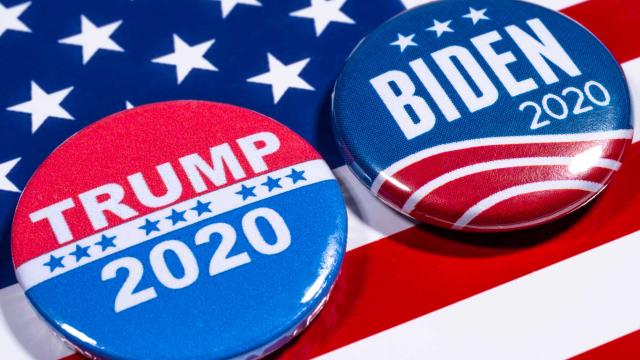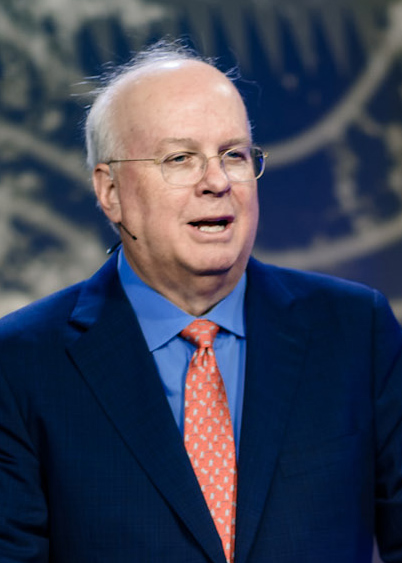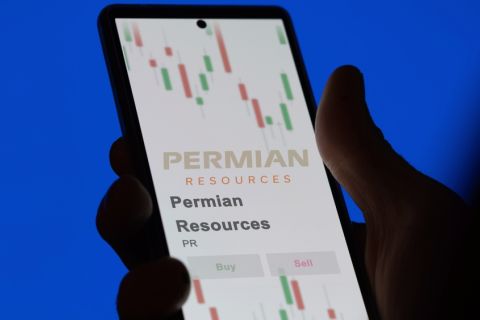
(Source: chrisdorney/Shutterstock.com)
Energy is unlikely to be a major national issue in the 2020 presidential election campaigns unless President Donald Trump chooses to attack his Democratic opponents over their support of some elements of the Green New Deal, renowned political strategist Karl Rove said during his Summer NAPE keynote address on Aug. 12.
The president could leverage the positions of former Vice President Joe Biden and his running mate, Sen. Kamala Harris, to his advantage “if he tries to make those an issue of the economy, saying what they intend to do on energy, on climate, will affect the size of your utility bill, the quality of American jobs and quantity of American jobs, and affect America’s role as [an] energy leader in the world,” Rove said.

But he added a caveat: “Only if the Trump campaign—in a disciplined, directed, personal fashion—makes this an issue will energy be a part of the stage.”
Rove, former senior adviser and deputy chief of staff to President George W. Bush, affirmed that the election will be of consequence to the energy industry but that energy policy would probably be relegated to an issue in certain states.
“For example, to the degree that Texans become aware that the Biden administration will immediately put a moratorium on new leases in the Gulf of Mexico and the Houston economy, the Texas economy would thereby suffer, the less likely it is that Biden’s going to be able to carry Texas,” he said.
In the most recent poll listed on FiveThirtyEight, a website focused on poll analysis, Trump led Biden by six percentage points, 49% to 43%. That poll, by the Trafalgar Group, was conducted on Aug. 1-5.
Political Climate of Climate Change
Rove acknowledged that a Biden administration would have the regulatory authority to curtail hydraulic fracturing by stopping it on federal land and in federal waters. That presumptive vice presidential candidate Harris would support a ban was a source of frustration to him.
“It’s a sign of how unglued we are as a country to even be thinking about this,” he said.
Rove also had blunt words for the oil and gas industry when asked how it should engage in the public debate on climate change.
“First, it’s got to get its act together,” he said of industry. “It seems there’s a lot of disparate voices here, and that’s normal. But through their trade associations they’ve got to find a way to make a case that they are contributing to climate solution, not climate problem.”
Rove stressed that the U.S. is the only major industrialized country since Jan. 1, 2000, to be able to consistently grow its economy and reduce its absolute level of greenhouse gas emissions.
“We ought to be heralding that success and saying, let’s take that American ingenuity and experience and innovation and spread it around the world,” he said. “It’s a good thing for us to be exporting American natural gas because it will, in some places, replace dung and coal and oil and wood as means of generating electricity. We ought to be proud of what we can do with our natural resource and how it can help the world address its climate concerns.”
For those wondering what a second Trump term would mean for the oil and gas industry, Rove’s advice is to expect more of the same.
“He would continue to do what he’s been doing, which is finding ways to reduce regulation, incentivize and encourage production, export,” he said. “He’d be an advocate and defender of what the energy industry is doing. And he recognizes this is a way to create good, high-paying jobs. Because it’s not just the jobs in energy itself. It’s the jobs in steel, chemicals and refining and transportation—all these things.”
Recommended Reading
Stockholder Groups to Sell 48.5MM of Permian Resources’ Stock
2024-03-06 - A number of private equity firms will sell about 48.5 million shares of Permian Resources Corp.’s Class A common stock valued at about $764 million.
Viper Energy Announces Pricing of Diamondback’s Secondary Common Stock Offering
2024-03-06 - Viper Energy will not receive any of the gross proceeds from Diamondback’s secondary offering of its Class A common stock.
TPG Adds Lebovitz as Head of Infrastructure for Climate Investing Platform
2024-02-07 - TPG Rise Climate was launched in 2021 to make investments across asset classes in climate solutions globally.
President: Financial Debt for Mexico's Pemex Totaled $106.8B End of 2023
2024-02-21 - President Andres Manuel Lopez Obrador revealed the debt data in a chart from a presentation on Pemex at a government press conference.
BP’s Kate Thomson Promoted to CFO, Joins Board
2024-02-05 - Before becoming BP’s interim CFO in September 2023, Kate Thomson served as senior vice president of finance for production and operations.





